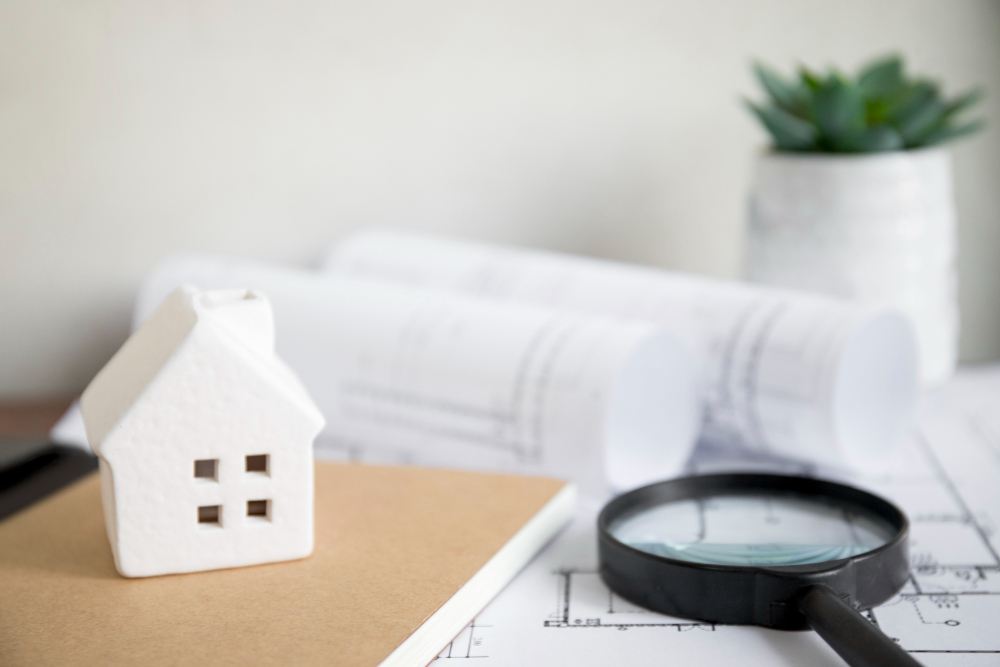A Complete Guide to Home Inspection on New Build
When buying a newly constructed home, many people assume that it's flawless, given that it's brand new. However, this assumption can lead to significant problems down the road. Home inspection on new build is a crucial step in the home-buying process, ensuring that the property meets all safety standards and construction quality expectations.
In this comprehensive guide, we'll delve into the importance of home inspections for new builds, what to look out for, and how to navigate the process effectively.
Why Is a Home Inspection on New Build Important?
Even though new builds are generally constructed under strict building codes, errors and oversights can still occur. So, thorough property condition assessments on these newly built structures can uncover issues that might be missed during the construction process. These issues could range anywhere from minor cosmetic defects to significant structural problems.
According to the National Institute of Standards and Technology (NIST), quality control in construction is not foolproof, and even new builds can have defects. This makes a home inspection crucial to identify any potential problems before they become major expenses.
What Are the Key Components of New Home Building Inspections?
1. Foundation and Structural Integrity
The foundation is the most critical aspect of any home. So, when it comes to building inspection for new house, inspectors will look for cracks, settling, and other signs of potential problems. Issues with the foundation can lead to severe structural damage if not addressed promptly.
Additionally, inspectors will check the overall structural integrity, including load-bearing walls, roof systems, and floor joists. Any deficiencies here could compromise the safety and stability of the home.
2. Electrical Systems
Inspecting the electrical system in a new build is essential to ensure that it meets all safety codes and standards. The inspector will examine the wiring, outlets, circuit breakers, and overall system design. Proper grounding and circuit protection are critical to prevent electrical fires and ensure the safety of future homeowners.
3. Plumbing
The plumbing system is another crucial area of focus during a new build inspection. Inspectors will check for leaks, proper installation of pipes, and ensure that the water pressure is adequate. They will also inspect water heaters, sewage systems, and drainage to ensure they are functioning correctly and up to code.
4. HVAC Systems
Heating, ventilation, and air conditioning systems need to be properly installed and fully operational in a new build. The inspector will check for correct installation of the HVAC units, proper ventilation, and the efficiency of the system. A well-functioning HVAC system is essential for energy efficiency and maintaining comfortable living conditions.
5. Roofing and Exteriors
Inspectors will closely examine the roof for proper installation, potential leaks, and overall durability. They will also inspect the exterior walls, windows, and doors to ensure they are weather-tight and properly insulated. Any deficiencies in the roofing or exterior can lead to costly repairs in the future.
6. Interior Features
This includes checking the quality of materials used, the installation of fixtures, and the overall finish of the interior. Even though these might seem like minor details, they can significantly impact the resale value and long-term satisfaction with the home.
7. Safety Systems
Finally, inspectors will assess the installation and functionality of safety systems, including smoke detectors, carbon monoxide detectors, and fire alarms. Ensuring these systems are in place and operational is vital for the safety of the home's occupants.
Are Home Inspections Necessary for New Builds?
You might wonder, "Should I get a home inspection on a new build?"
The answer is a resounding yes. Builders are human, and mistakes can happen. Sometimes, subcontractors might cut corners, or issues might arise due to unforeseen circumstances like weather conditions during construction.
Moreover, some defects might not be immediately visible. For instance, a small plumbing leak might not be noticeable right away but could lead to significant water damage over time. Similarly, a minor electrical issue could pose a fire hazard if left unchecked.
What Is the Role of Final Inspection in New Build?
Before you close on a new build, a final inspection, sometimes referred to as a "pre-delivery inspection," is conducted. This inspection allows you to walk through the property with your builder to identify any issues or incomplete work. The builder is typically responsible for fixing these issues before you move in.
However, it's still advisable to have an independent inspection conducted by a qualified professional. This ensures an unbiased assessment of the property and can provide peace of mind that your new home is in perfect condition.
How Commercial Property Inspections Play a Role?
For those investing in larger residential or commercial properties, commercial property inspection services can offer insights beyond the scope of a typical home inspection. These inspections cover aspects like environmental hazards, compliance with zoning laws, and the overall suitability of the property for its intended use.
Expert Tips for Navigating the Home Inspection Process
- Hire a Qualified Inspector: Ensure that your inspector is licensed and has experience with new builds.
- Be Present During the Inspection: This allows you to ask questions and get a firsthand look at any potential issues.
- Request a Detailed Report: A comprehensive inspection report will outline all the findings and provide recommendations for any necessary repairs.
- Negotiate with the Builder: Use the inspection report to negotiate with the builder to fix any issues before closing the sale.
Conclusion
Investing in a home inspection on new build is a crucial step that should not be overlooked.
While new homes are built to meet current building codes and standards, they are not immune to defects and issues.
As such, ensuring a thorough inspection is important to protect your investment and ensure that your new home is safe, sound, and built to last.
